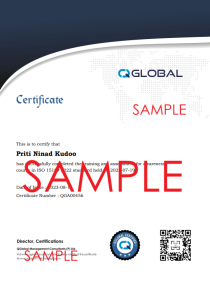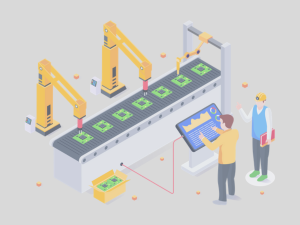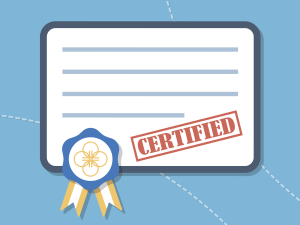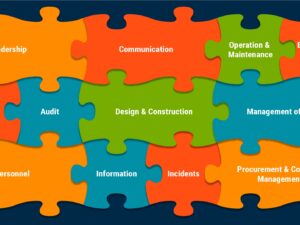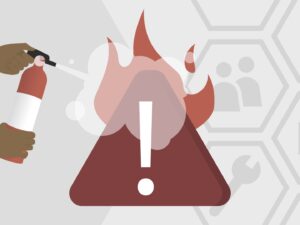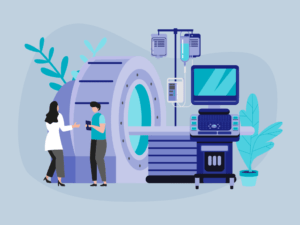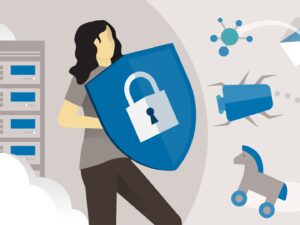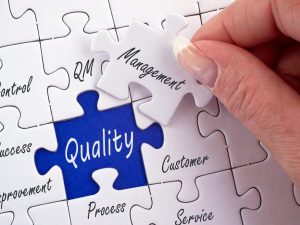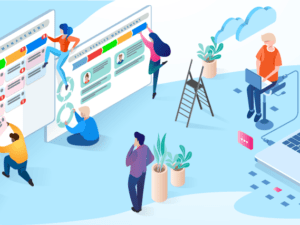ISO 29001 2020 Petroleum, petrochemical and natural gas industries QMS - Lead implementer course
- Description
- Curriculum

ISO 29001 2020 standard defines quality management system requirements for product and service supply organizations to the petroleum, petrochemical and natural gas industries. The ISO 29001 standards provide guidance and tools for companies and organizations who want to ensure that their products and services consistently meet customer’s requirements, and that quality is consistently improved. ISO 29001 standards set out the criteria for a quality management system and is the only standard in the family that can be certified to (although this is not a requirement). It can be used by any organization, large or small, regardless of its field of activity. This standard is based on a number of quality management principles including a strong customer focus, the motivation and implication of top management, the process approach and continual improvement. Using ISO 29001 helps ensure that customers get consistent, good quality products and services, which in turn brings many business benefits. An effective implementation is essential if organizations are to maximize the cost saving, performance, and customer satisfaction benefits of ISO 29001 2020 standards. ISO 29001 2020 lead implementer course is good for those who need an overview on the ISO 29001 2020 standards, or those who will be involved in the implementation of ISO 29001 2020 standards within an organization. ISO 29001 2020 implementation course will guide you through the implementation process by explaining the requirements of ISO 29001 2020 standard and how they can be applied using international best practices and methods. Using a step-by-step approach, you will learn how to develop an implementation plan, create the necessary documentation, monitor the quality management system, and achieve continual system and quality improvement.
Who Should Attend?
- Anyone responsible for implementing ISO 29001 2020 standard
- Those who want to learn how to interpret the requirements of ISO 29001 2020 standard
- Managers or executives involved in delivering ISO 29001 2020 standard
- Heads of various departments in an organisation
- Those who are planning for a career or working in a quality and performance oriented organisation
- Anyone looking to gain skills and knowledge to improve their career performance
Key Benefits
- Understand concepts and importance of the ISO 29001 2020 management system principles.
- Grasp the application of risk-based thinking, leadership and process management
- Interpret requirements of ISO 29001 2020 standard and its effective application for managing and improving the functioning of an organization through process approach.
- Understand and develop skills for implementation of management system to manage processes of the organization.
- Build stakeholder confidence by managing processes in line with the latest requirements
- Understand and develop problem solving skills
- Maintain and continually improve your quality management system
- Learn techniques to create and manage documents and records relevant to ISO 29001 2020 quality management system , critical to the products and services delivered and those required to meet customer and regulatory requirements
- Learn skills in human resource management, supplier management, customer management , operations management, inventory management, laboratory management, production planning and logistics management
- Learn to identify and mitigate internal and external issues relevant to businesses
- Learn to identify stakeholder expectations and prepare action plans to fulfill them
- Learn to define and optimize the processes in your organisation
- Understand the methods to develop a customer focus approach in an organisation
- Identify improvement objectives and plans to achieve them
- Understand traceability requirements relevant to products and services
- Develop an effective business communication plan
- Learn to manage design and development activities
- Learn techniques to manage nonconformity in products and services delivered and take corrective actions
- Learn to implement the communication requirements
- Learn to develop and assign roles and responsibilities to implement and follow ISO 29001 2020 standard
- Learn to implement the documentation and record keeping practices for ISO 29001 2020 standard
- Learn to implement the inspection and verification techniques to ensure compliance to the requirements of ISO 29001 2020 standard
- Fill gaps in your professional knowledge
Learning & Evaluation Method
This is a live and interactive course. Once you purchase the course, our team will contact you to plan the training. No matter where you are located, we schedule the classes based on your convenience and time zone. You can plan to attend the training in sessions of 4 or 8 hr duration, based on how much time you can spend in a day.
Certification
There are increasing numbers of organizations, who prefer candidates those who have completed management system trainings from a recognized institution. Certification demonstrates your commitment to superior professionalism, upholding industry standards, and continued learning. These merits can help boost your professional credibility and prestige within your own network, in your organisation, with your current clients, and when pursuing new business opportunities. After the successful completion of the course and final exam, you will be awarded with a certificate of completion issued by QGlobal. Your credentials will be made available in the global online directory and can be verified by anyone searching with the certificate number. Without doubt we can say that our training courses are well recognized and sought after by organizations across various geographies.
Buy for group Are you planning to buy this course for a group? We have the best prices for you! Select ‘Buy for Group’ option and add to the cart. You will get a discount of 60 – 75% for a group of up to 10 participants. To make a group purchase, create your group name and add individual emails of up to 10 participants. Each participant will get the access to the course materials, exam and the certificate. We will arrange one live-online session for the entire group.
Total: 206 Courses View all
Total: 206 Courses View all
-
1Introduction to standards and certification
- Purpose of standardization
- Benefits of certification
-
2Introduction to ISO 29001 standards
-
3Terms and definitions
- Terms related to person or people
- Terms related to organization
- Terms related to activity
- Terms related to process
- Terms related to system
- Terms related to requirement
- Terms related to result
- Terms related to data, information and document
- Terms related to customer
- Terms related to characteristic
- Terms related to determination
- Terms related to action
- Terms related to audit
-
4ISO 29001 Context of the organisation
-
5ISO 29001 Leadership
-
6ISO 29001 Planning
-
7ISO 29001 Operation
-
8ISO 29001 Support
-
9ISO 29001 Performance evaluation
-
10ISO 29001 Improvement
-
11LI 01 Building the team
-
12LI 02 Conducting gap analysis
-
13LI 03 Preparing implementation plan
-
14LI 04 Creating awareness
-
15LI 05 Conducting training
-
16LI 06 Procuring documents
-
17LI 07 Creating management system manual
-
18LI 08 Creating policies and procedures
-
19LI 09 Creating forms and templates
-
20LI 10 Planning for certification
-
21LI 11 Implementation methodology
- Building the culture
- Plan-Do-Check-Act
-
22LI 12 Role of leadership in implementing the management system
- Leadership concepts
- Role of leaders in implementing the management system
- 12 Characteristics of team leaders and managers
-
23LI 13 Employee motivation and involvement
- Employee wants
- Achieving a motivated workforce
-
24LI 14 Obstacles in implementing the management system
- Inability to manage the change
- No planned review of the system
- Inadequate planning
- Not aligning the goals and matrices
- Poor commitment from top management
- Differences between departments and individuals
- Lack of awareness and not providing continuous training
- Poor documentation
- Inadequate monitoring, measuring and analysis of data and results
- Not paying attention to internal and external customers
- Failure to continually improve
- Failure to motivate and empower employees

